
Recently, I was afforded the opportunity to do a deep dive into the day-to-day life of a police officer. I knew working in law enforcement was a career that came with intensity and stress that can at times be dangerous. While on duty responding to a call, the temperament of any situation can change in seconds.
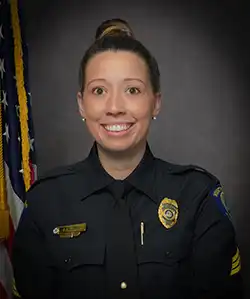
I was offered the chance to do a walkthrough tour of the Mount Pleasant Police Department. The ride-along experience is something I will never forget. It opened my eyes to what patrol officers really do within our community.
Any citizen can participate in ride-alongs with a patrol officer after a clear background check. MPPD encourages the community to inquire and experience what it’s like to ride with an officer. Entering the Department at 6 a.m., I was greeted by the morning patrol team as they were being debriefed from the previous shift.
Patrol has three shifts which include: morning from 6 a.m.-4 p.m., second shift from 1-11 p.m. and third shift from 9 p.m. to 7 a.m. An officer spends eight solid hours on the road with an additional two hours doing paperwork.
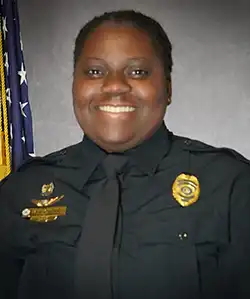
During my ride along, I met Sgt. Ashley Croy, who proudly serves her community, is a former patrol officer of 10 years who now works as a public information officer. “My job is solely to get information out to the public via all platforms.”
Croy’s constantly devising the best ways to educate the public to help make them aware of what’s happening within the community. For example, during Tropical Storm Debby, it was Croy’s job to keep the community up to date with information and details to help us stay safe.
I also had the pleasure of meeting Officer Michaela Capers, a traffic division officer. “My everyday duties are anything dealing with the traffic within Mount Pleasant.” If it involves speed or traffic light enforcement, basic traffic enforcement for infractions, working traffic directions or traffic collisions, Capers is there.
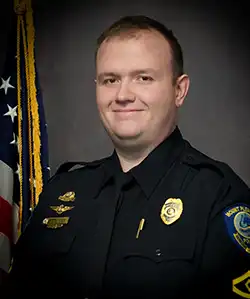
As well as the honor of meeting Officer Jason Shaver on the morning of my ride-along. Shaver is more than just a patrol officer; he is also involved with the Harbor Patrol and Mobile Field Force. As we drove off, Shaver explained that Mount Pleasant is split into eight districts. Every patrol officer is given a district/neighborhood to patrol. This enables officers to respond quicker to a call. At any point on the ride, Shaver could receive a call that could completely change the course of his day.
“My father was a New York State corrections officer. That made me aware of public service,” explained Shaver. “My mother is a doctor. My family has always served.”
Depending on the type of call, Detective Joshua Ballentine might need to come onto the scene to handle the case. Ballentine, who specializes in criminal investigation, has been with the department for nine years. Ballentine reviews incidents from the day’s priors, working on newly-assigned cases and continuing to work on prior assigned cases. He conducts research through online databases and interviews, collects and preserves evidence and creates search and arrest warrants.
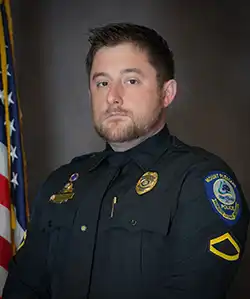
Ever been curious about forensic services? CSI Angela Mitchell handles the crime scene and evidence. “I try to take care of our trackers. Keeping track of our evidence, crime scenes; if it’s a little bit above patrol level, they will call us to come in and handle it,” Mitchell explained.
For every crime scene, Mitchell and her team take photographs and process any kind of evidence on scene, such as DNA and fingerprints. “We just look to see if there’s anything out of place. Anything that could be related to the crime itself,” said Mitchell.
Many people think they may know how police operations are run by watching TV or what they see in a movie. The truth is, after graduating from the Police Academy, an officer’s responsibility to keep up with continuing education and stay current in practice and knowledge is perpetual.
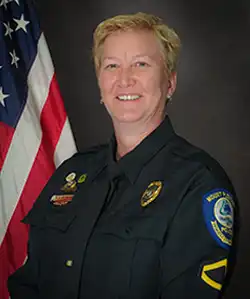
“Our training never stops. As a patrol officer, we are doing at least 100 hours of training per year,” noted Shaver. “Any new updates from the local or state government, we are notified and trained on.”
Any one of these officers, along with others in law enforcement, need to be agile, both mentally and physically, and capable of making quick decisions when called upon. With the countless stressors they experience in their careers, it is imperative that our civil servants teach themselves how to detox and relieve stress.
With work days averaging 10-12 hours or longer, officers have responsibilities and witness things civilians couldn’t even imagine. Sitting down with the officers and listening to their career stories, the level of uncertainty and spontaneity in their job immediately becomes apparent. It can be easy for anxiety and adrenaline to run high, greatly impacting these officers from day to day.
Mental health is important and MPPD takes it very seriously. “You must figure out ways to decompress yourself. You don’t want to take anything home with you,” stated Croy. “You are answering 911 calls and that could be the worst day of someone’s life.”
Many officers detox with their families, by spending time in nature, traveling, playing video games or sinking into an uplifting streaming series. Capers has a twin sister who works in another department and they both garner unquantifiable support from one another. Detective Ballentine loves baking and cooking to decompress. Mitchell enjoys watching Bravo and presently is on a “Top Chef” binge.
It takes patience, intelligence, courage and determination to be a police officer. These men and women risk their lives daily for the people they serve, continuously needing to recalibrate to each situation as it unfolds.
Let us thank these courageous civil servants of the community for their dedication to upholding a safe, lawful society, and for allowing us to feel protected and more connected within our community. It is because of your service that we enjoy the freedom that safety provides.
For anyone interested in doing a ride along with the MPPD call their main number at (843) 884-4176 to get details.
By Maurice J. Frazier

Who do you contact to do a ride along? I’d like to do one but can’t find information for it anywhere on the page